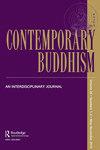LIMITING THE RISK TO COMBATANT LIVES: CONFLUENCES BETWEEN INTERNATIONAL HUMANITARIAN LAW AND BUDDHISM
IF 0.1
3区 哲学
0 PHILOSOPHY
引用次数: 1
Abstract
ABSTRACT This article places international humanitarian law (IHL) side by side with Buddhist narratives as seen through the Jātakas, to investigate how they view the expectation placed on soldiers to risk their lives in battle. To this end, I delve into the notion of reciprocity of risk in battle from an IHL perspective, which I argue is crucial to infusing warfare with restraint. Similarly, Buddhism acknowledges the importance of reciprocity as an ethical principle that leads to non-violence. I demonstrate how IHL tries to ensure that the risk combatants undertake in combat is limited through its rule of surrender. I compare this argument with the Seyyaṃsa or Seyya Jātaka (no. 282), which illustrates the need to cease violence in cases of surrender. The way militaries treat their own combatants is crucial to the meaningful practice of surrender and thereby the limits and restraints of warfare. Buddhism too encourages rulers to value the lives of their soldiers and not to put their lives at unnecessary risk. I conclude that to maximise the combatant’s choice to limit the risk he takes in battle, IHL should pay more attention to the orders that militaries and armed groups issue to their combatants. Buddhism, for its part, can facilitate the constructive use of military orders because it projects positive images of rulers who are reluctant to order their soldiers to take unnecessary risks in war.限制战斗人员生命的风险:国际人道法与佛教的融合
本文将国际人道法与通过Jātakas看到的佛教叙事放在一起,调查他们如何看待士兵在战斗中冒着生命危险的期望。为此,我从国际人道法的角度深入研究了战斗中风险互惠的概念,我认为这对于为战争注入克制至关重要。同样,佛教也承认互惠的重要性,这是一种导致非暴力的道德原则。我展示了国际人道法如何通过其投降规则来努力确保战斗人员在战斗中承担的风险受到限制。我将这个论点与Seyyaṃsa或Seyya Jātaka (no。282),这说明在投降的情况下必须停止暴力。军队对待自己战斗人员的方式对于有意义的投降实践至关重要,从而对战争的限制和约束至关重要。佛教也鼓励统治者重视士兵的生命,不要把他们的生命置于不必要的危险之中。我的结论是,为了使战斗人员的选择最大化,以限制其在战斗中承担的风险,国际人道法应该更加关注军队和武装团体向其战斗人员发出的命令。就其本身而言,佛教可以促进军事命令的建设性使用,因为它展示了统治者不愿命令士兵在战争中承担不必要风险的正面形象。
本文章由计算机程序翻译,如有差异,请以英文原文为准。
求助全文
约1分钟内获得全文
求助全文

 求助内容:
求助内容: 应助结果提醒方式:
应助结果提醒方式:


